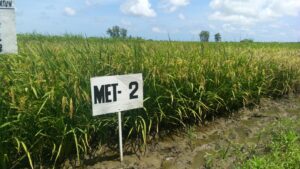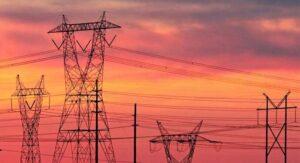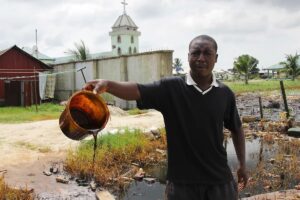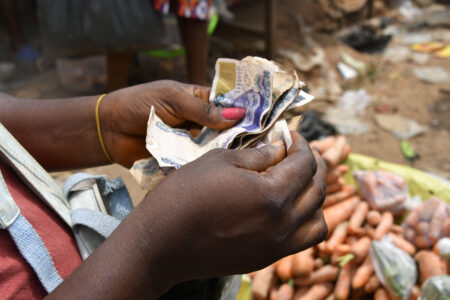- Kenya-Ethiopia Trade Relations: Legislators Advocate for Policy Alignment to Boost Ties
- Visualising the state of debt in Africa 2024
- Abu Dhabi radiates optimism as over 300 startups join AIM Congress 2024
- TLcom Capital Raises $154 million in Funding to Boost Its African Growth
- Africa’s $824Bn debt, resource-backed opaque loans slowing growth — AfDB
- LB Investment brings $1.2 trillion portfolio display to AIM Congress spotlight
- AmCham Summit kicks off, setting course for robust future of US-East Africa trade ties
- Why the UN is raising the red flag on the UK-Rwanda asylum treaty
Opinion
- Artificial intelligence in Africa can potentially propel the fintech industry into a new era of financial inclusion.
- AI tools can analyse data from client discussions, producing legal documents in simple language and at a fraction of what it would typically take to draft a contract.
- Banks, for example, can make their services more affordable to their customers by rolling out AI-powered chatbots to handle routine queries while sparing them from having to travel to a bank branch.
It’s difficult to imagine a time before the widespread adoption of mobile technology in Africa – particularly where financial services are concerned. For millions of unbanked people, transactions were limited to cash, postal services or even the barter system.
Now, in much the same way as mobile payments completely disrupted the status quo, AI has the potential to propel the fintech industry into a new era of financial inclusion. And perhaps most exciting …
- One of the most important ways a fintech can listen to its customers is to gauge how they engage with its products.
- Having a deep understanding of customer needs results in innovative solutions.
All around the world businesses are pulling out the stops to achieve growth in what can best be described as challenging economic conditions. Africa is no exception. The continent has long been recognised for its immense potential, and as such businesses across sectors are investing heavily into the continent.
Advancements in technology make serving the unbanked and underserved populations in Africa more viable than ever before. However, that does not mean growth comes easily. It is a hyper competitive and complex environment where genuinely understanding your customer is key to growth.
Even with this textbook understanding, there is a strong urge to take the “build it and they will come” approach because we can get caught up …
- Namibia is fortunate to benefit from the experiences of other oil- and gas-producing states.
- The country’s oil and gas sector is still looking forward to reaching the production phase, but S&P Global analysts don’t anticipate Namibia’s first oil production will come until 2029.
- Further, the country’s first gas-to-power project is scheduled to begin in 2027.
Namibia’s energy sector is still looking forward to reaching the production phase — S&P Global analysts don’t anticipate Namibia’s first oil to come until 2029, and the country’s first gas-to-power project is scheduled to begin in 2027.
Ohio State Team Jersey
ohio state jersey
Ohio State Team Jersey
asu jersey
ohio state jersey
Iowa State Football Uniforms
detroit lions jersey
micah parsons jersey
micah parsons jersey
Iowa State Football Uniforms
fsu football jersey
OSU Jerseys
custom football jerseys
asu jersey
Before Namibia achieves these hotly anticipated milestones, Namibian lawmakers can implement thoughtful, …
On 1 January 2021, trade began within the African Continental Free Trade Area (‘AfCFTA’). After years of preparation, and being postponed due to the COVID-19 pandemic, AfCFTA becomes the largest free trade area in the world based on the number of participating countries since the World Trade Organization (‘WTO’) was formed and connects some 1.3 billion people across the African continent.
Among many other key developments under the AfCFTA, member states have agreed to remove 90 per cent of tariff lines on non–sensitive products within five years for developing countries and within ten years for least developed countries.
The AfCFTA seeks to provide member states a comprehensive and mutually beneficial trade agreement that aims to boost intra-African trade. As noted by the World Bank, “[a]s the global economy is in turmoil due to the COVID-19 pandemic, creation of the vast AfCFTA regional market serves as a major opportunity to …
The first quarter of 2021 ended on a great note as two African fintech businesses gained unicorn status, a rare fit amidst a ragging global pandemic that is finally being aggressively tackled by the speedy supply of much-needed vaccines. Such is the African story – a trail of surprises in the midst of uncertainty. On 18th March 2021, Airtel Africa announced it had received a $200M investment from TPG’s Rise Fund at a valuation of $2.65B making it the latest African unicorn[1]. Exactly a week before, March 10th, 2021, Flutterwave from Nigeria also announced a $170M investment from Avenir Growth Capital, Tiger Global Management and others at a billion-dollar valuation[2]. In the tech world hitting a billion-dollar valuation is a big deal – you earn the name Unicorn, a mythical animal that represents the statistical rarity of successful ventures coined in 2013 by …
In the South African Department of Mineral Resources and Energy 2020 Annual Performance Plan report, the authority highlighted the importance of the energy sector in catalyzing economic growth and development.
As in the report, real-life reflects the need for a reliable supply of energy to ensure that Africa continues to push its presence onto the global stage and build foundations of economic and social prosperity.
To achieve this change, and to transform the continent’s legacy challenges into a future that allows for continued growth and development, it remains a priority for the government and private sector to invest in energy solutions that are sustainable, reliable, and relevant.
As the continent moves into the first half of 2021, it’s the right time to look ahead at what the year ahead looks like for the energy sector and what changes or opportunities could potentially shift energy solutions into high gear.
The Renewable
…Economic prospects are predicting that 2021 will be a happier year for Pension Schemes. The devasting impact of Covid-19 had far reaching implications on the pension sector, especially in 2020 caused by several factors.
Also Read: Covid Economics: Kenya’s navigation of debt relief
- We had massive payouts, especially in the hospitality sector as companies closed down and retrenched. Pension scheme members made early access to pension benefits to cushion their financial well-being.
- A number of employers could not afford contributions funding to pension scheme and So they adapted to this challenge by obtaining a reprieve from the Retirement Benefits Authority to have temporal suspension of contributions deduction and remittance.
- The stock market also had a significant dip in valuations occasioned decline in earnings from a number of counters especially banking sector.
- In 2020 the GDP growth dropped to 1% growth compared to the projected growth of about 5%.
Despite the …
As the largest economy in Africa, with huge gas reserves and high solar energy potential, Nigeria has all the natural resources necessary to meet the growing demand for electricity. However, the inadequate energy infrastructure still leaves a significant part of the population without power or relying on oil-fired back-up generators. If Nigeria can improve its energy infrastructure and unlock its gas-to-power generation potential, it paves the way to integrating low-cost renewable energy, bringing electricity and development opportunities to rural villages, driving industrial growth and employment, and increasing prosperity across the country.
There is no doubt that gas has an important role to play in meeting Nigeria’s electricity demand, but to achieve this, there is an urgent need to reform the gas and electricity sectors. The poor condition of the gas transmission and distribution system is a major constraint as domestic supply shortages and insufficient pressure severely affect the reliability of …
The coronavirus disease of 2019 (COVID-19) pandemic gripped the world with shock and overwhelmed the health care systems of most nations. The World Health Organization (WHO) declared the novel human coronavirus disease (COVID-19) outbreak, which began in Wuhan, China on December 8, 2019, a Public Health Emergency of International Concern (PHEIC) on January 30, 2020, with over seven million cases globally as of June 7, 20201.
In July 2020, over 663,000 confirmed Covid-19 cases were recorded in Africa with more than 343,000 recoveries and 14,000 deaths. 324,211 cases were recorded in South Africa with 4,699 deaths, followed by 34,854 confirmed cases in Nigeria and 769 deaths, 26,125 confirmed cases and 139 deaths in Ghana. Countries currently with the lowest cases in the region are Gambia, Seychelles and Eritrea. Southern Africa is the most affected area across the continent in terms of positive Covid-19 cases and Northern Africa closely …


























